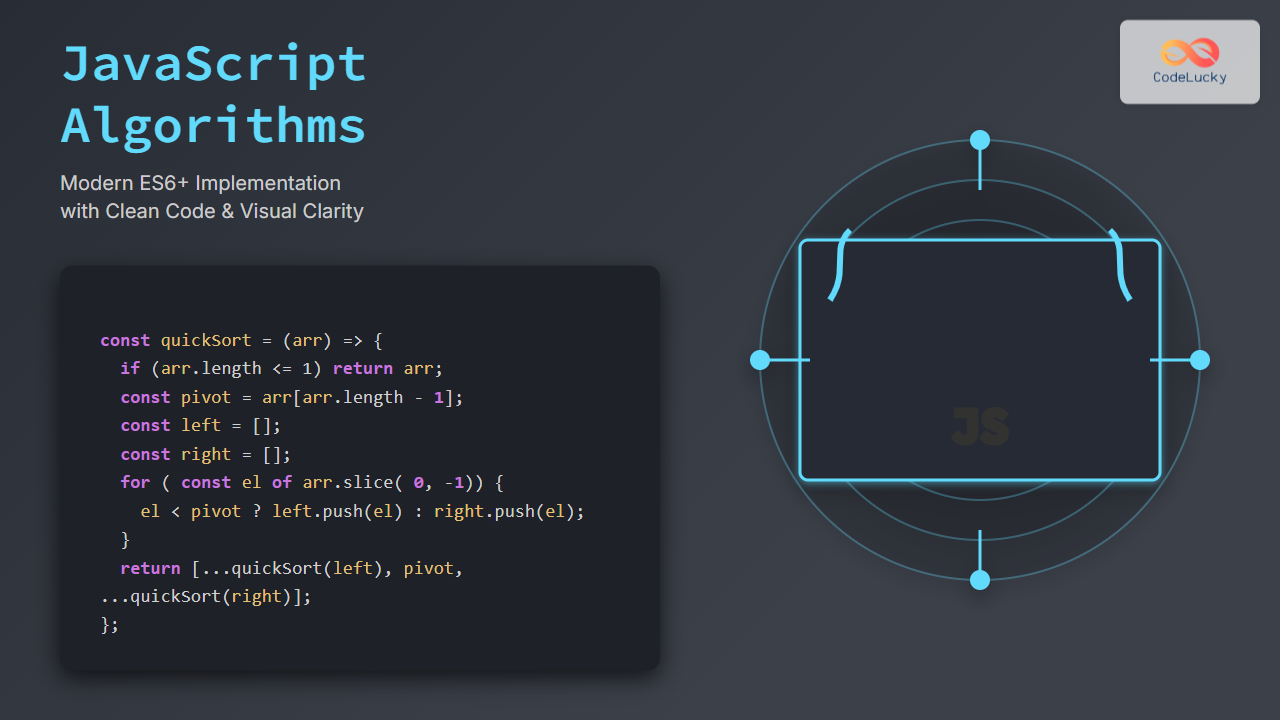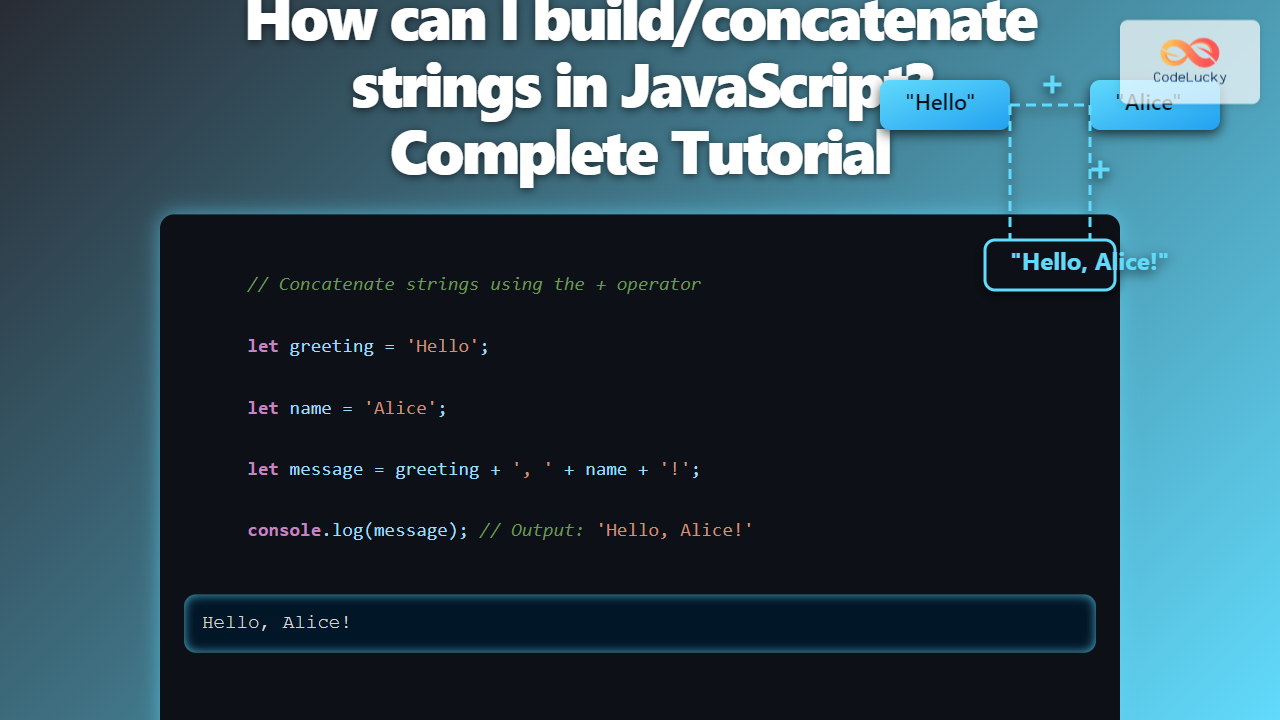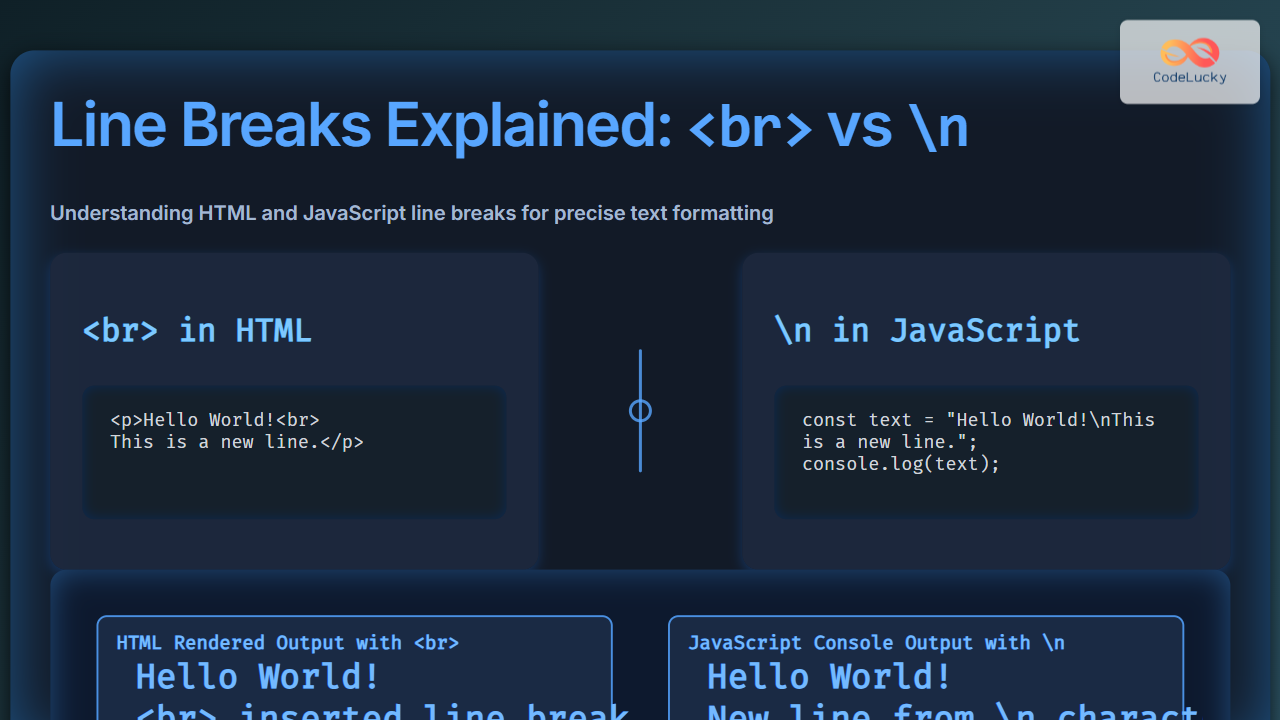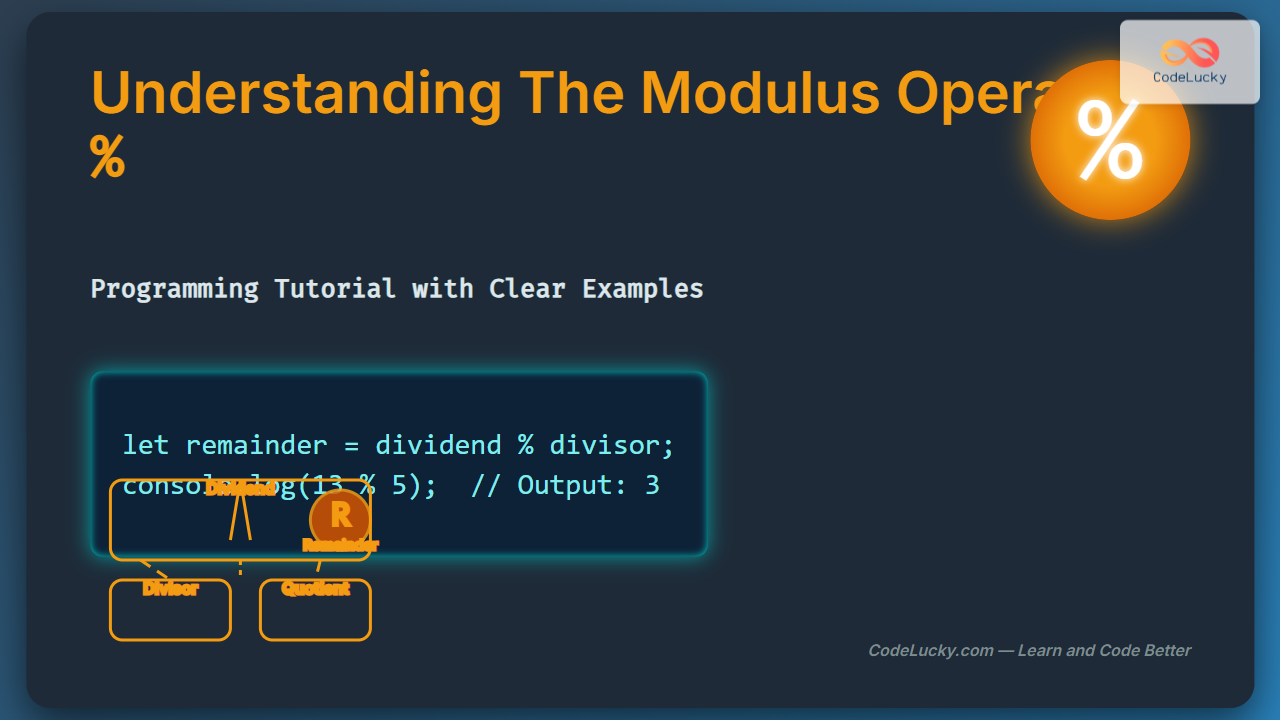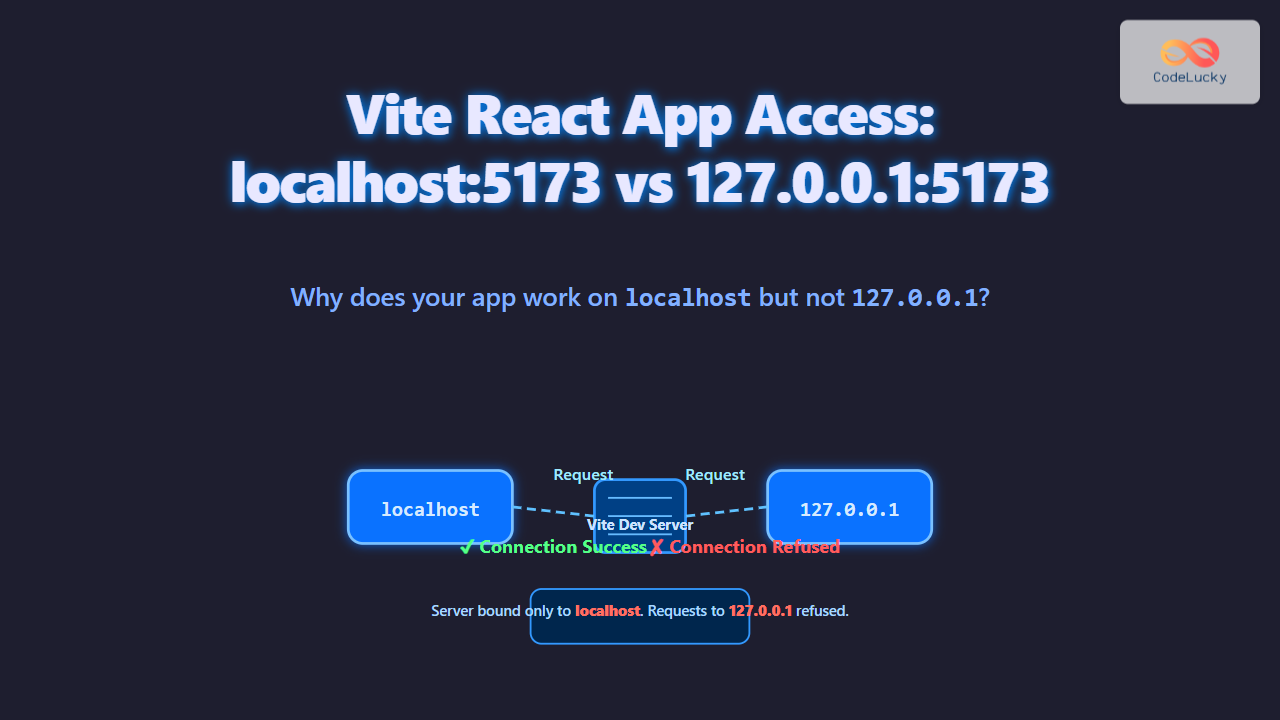Understanding the compile() Method in JavaScript Regular Expressions
The compile() method in JavaScript is used to compile or recompile a regular expression during the execution of a script. While its direct use is less common in modern JavaScript due to automatic compilation and newer alternatives, understanding it can be valuable when dealing with legacy code or specific performance optimization scenarios. 🧐
What is the compile() Method?
The compile() method is a member of the RegExp object. It compiles a regular expression for faster execution. If a regular expression is used multiple times, compiling it can improve performance, although modern JavaScript engines often optimize this process automatically.
Purpose of the compile() Method
The primary purposes of the compile() method are:
- Recompilation: To recompile a regular expression, possibly with different flags or patterns, during script execution.
- Performance Optimization: In older JavaScript environments, to manually optimize the execution speed of regular expressions that are used repeatedly.
Syntax of the compile() Method
The syntax for the compile() method is straightforward:
regexObj.compile(pattern, flags);
Where:
regexObj: TheRegExpobject to be compiled or recompiled.pattern: The regular expression pattern as a string.flags: An optional string of flags that specify options such as global search (g), case-insensitive search (i), and multiline search (m).
compile() Method Attributes
Here’s a table detailing the attributes of the compile() method:
| Attribute | Type | Description |
|---|---|---|
regexObj |
RegExp |
The RegExp object that the compile() method is called upon. |
pattern |
String |
The regular expression pattern to be compiled. |
flags |
String (Optional) |
Flags to modify the search behavior:
|
Basic Examples of the compile() Method
Let’s explore some basic examples to understand how the compile() method works.
Compiling a Simple Regular Expression
In this example, we compile a simple regular expression to search for the word “hello” in a string.
<script>
const regex1 = new RegExp("hello");
const str1 = "hello world";
const result1 = regex1.test(str1);
console.log("Before compile:", result1);
regex1.compile("hello", "i"); // Case-insensitive
const str2 = "Hello world";
const result2 = regex1.test(str2);
console.log("After compile:", result2);
</script>
Output:
Before compile: true
After compile: true
Recompiling with Different Flags
Here, we recompile the regular expression with the i flag for a case-insensitive search.
<script>
const regex2 = new RegExp("world");
const str3 = "Hello World";
const result3 = regex2.test(str3);
console.log("Before compile:", result3);
regex2.compile("world", "i"); // Case-insensitive
const result4 = regex2.test(str3);
console.log("After compile:", result4);
</script>
Output:
Before compile: false
After compile: true
Using compile() with Variables
The compile() method can also be used with variables to dynamically change the regular expression pattern.
<script>
const pattern = "test";
const flags = "i";
const regex3 = new RegExp(pattern);
const str5 = "This is a Test string";
console.log("Before compile:", regex3.test(str5));
regex3.compile(pattern, flags);
console.log("After compile:", regex3.test(str5));
</script>
Output:
Before compile: false
After compile: true
Advanced Techniques with compile()
Combining compile() with User Input
You can use the compile() method to dynamically update a regular expression based on user input. While this example is for demonstration purposes, be cautious when using user input directly in regular expressions due to potential security concerns.
<input type="text" id="patternInput" placeholder="Enter pattern" />
<button onclick="updateRegex()">Update Regex</button>
<script>
const regex4 = new RegExp(""); // Initial empty regex
const str6 = "This is a sample text";
function updateRegex() {
const patternInput = document.getElementById("patternInput").value;
regex4.compile(patternInput, "i");
console.log("Regex test result:", regex4.test(str6));
}
</script>
Recompiling for Different Scenarios
In this example, we recompile the regular expression based on different conditions in the code.
<script>
const regex5 = new RegExp("example");
const str7 = "This is an example string";
let condition = true;
if (condition) {
regex5.compile("Example", "i"); // Case-insensitive
} else {
regex5.compile("string");
}
console.log("Result:", regex5.test(str7));
</script>
Output:
Result: true
Important Considerations
- Modern JavaScript Engines: Modern JavaScript engines often perform regular expression compilation and optimization automatically. In many cases, using
compile()may not provide significant performance benefits. - Readability: Overuse of
compile()can make code harder to read and maintain. Ensure its use adds value to your code. - Security: Be cautious when using user-provided input to construct regular expressions, as it can introduce security vulnerabilities.
Alternatives to compile()
In modern JavaScript, there are alternative approaches to achieve similar results without using the compile() method:
- Creating New
RegExpObjects: Instead of recompiling, create a newRegExpobject with the desired pattern and flags. - Using Template Literals: Use template literals to construct regular expressions dynamically.
Creating a New RegExp Object
<script>
const pattern = "modern";
const flags = "i";
const regex6 = new RegExp(pattern, flags); // Creating a new RegExp object
const str8 = "Modern JavaScript";
console.log("Result:", regex6.test(str8));
</script>
Output:
Result: true
Using Template Literals
<script>
const searchTerm = "template";
const regex7 = new RegExp(`${searchTerm}`, "i"); // Using template literals
const str9 = "Using Template Literals";
console.log("Result:", regex7.test(str9));
</script>
Output:
Result: true
Browser Support
The compile() method is supported by all major browsers. However, its usage is less common in modern development due to the reasons mentioned earlier.
Conclusion
The compile() method in JavaScript provides a way to compile or recompile regular expressions, which can be useful in specific scenarios for performance optimization or dynamic pattern updates. However, modern JavaScript engines often handle regular expression compilation automatically, and alternative approaches such as creating new RegExp objects or using template literals are often preferred for readability and maintainability. Understanding compile() can be valuable when working with legacy code or optimizing regular expressions in specific performance-critical applications. 🚀














